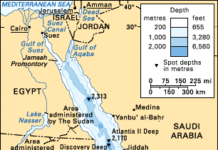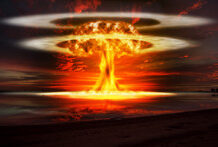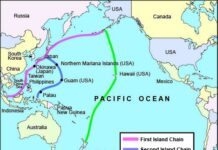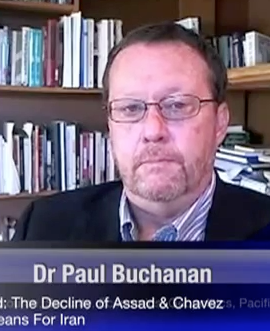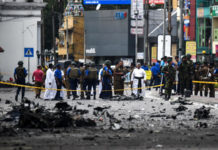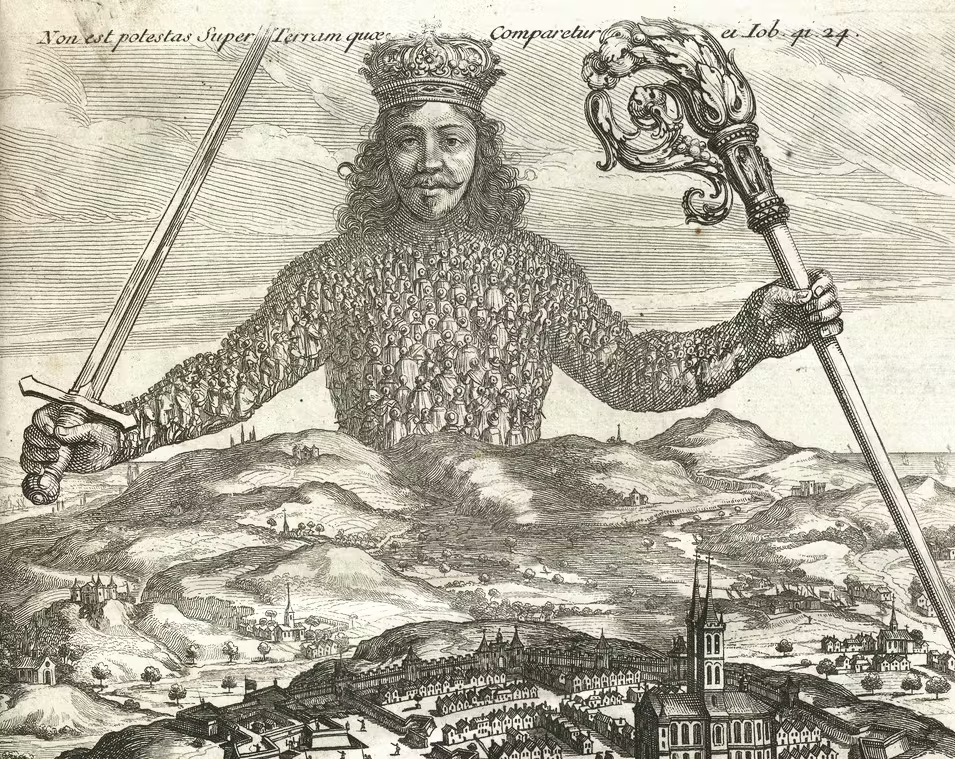Interview: 95bFM’s Simon Maude IVs Selwyn Manning On The Implications Of New Zealand Signing A NATO Security Pact
 95bFM’s The Wire – Recorded live on 7/06/12: Selwyn Manning & Simon Maude discuss the implications of New Zealand signing a NATO security pact titled Individual Partnership Cooperation Programme (IPCP).
95bFM’s The Wire – Recorded live on 7/06/12: Selwyn Manning & Simon Maude discuss the implications of New Zealand signing a NATO security pact titled Individual Partnership Cooperation Programme (IPCP).
Background:
This week New Zealand Prime Minister John Key travelled from London to north Europe where he signed New Zealand up to the NATO IPCP security agreement.
New Zealand agreed to sign the pact after attending the NATO nations special meeting held in Chicargo in May – where topics included a coordinated exit strategy regarding the Afghanistan conflict, and attrocities being committed in Syria.
The IPCP pact assures NATO of New Zealand’s commitment to NATO-led security efforts. The pact includes a focus on cyber-defence, disaster relief, crisis management, and joint education and training.
New Zealand certainly appears to be abandoning the independent foreign policy that it maintained from 1984 through to 2008. Since 2008 New Zealand has committed to closer defence relations with Australia, it has signed the Wellington Declaration committing New Zealand to a closer security relationship with the United States, and now with the signing of the NATO security partnership alliance document (IPCP), New Zealand demonstrated it has given distance to the independent stance it advanced when refusing to commit to US-led forces that invaded Iraq in 2003.
Is NATO shaping into a broader western-alliance led force?
 In recent times we have seen NATO leading a western aligned operation against Libya’s Gaddafi regime; we have seen the United Nations Security Council blocked from making a move against those committing atrocities in Syria. The UNSC is divided over Syria where the United States and west-leaning states favor intervention while Russia and China currently favor a diplomatic solution. The UNSC situation seems untenable.
In recent times we have seen NATO leading a western aligned operation against Libya’s Gaddafi regime; we have seen the United Nations Security Council blocked from making a move against those committing atrocities in Syria. The UNSC is divided over Syria where the United States and west-leaning states favor intervention while Russia and China currently favor a diplomatic solution. The UNSC situation seems untenable.
What has New Zealand signed up to?
The big picture provides a contextual backdrop where New Zealand signs the NATO security pact, we see the NATO secretary general traveling to Australia next week for similar talks, we saw this week Russian President Vladimir Putin meeting his counterpart from the People’s Republic of China in Beijing signing up to a closer security relationship between the two global powers.
The big picture also presents a series of unanswered questions, like:
What is NATO’s common enemy? Is it now outside those presenting as a terrorist organization? Is the common enemy once again states that the Western security alliance considers rogue such as Syria, Iran, Nigeria, Yemen, North Korea?
Are we seeing the emergence once again of a bipolar world divided between countries embracing western ideals form multilateral pacts outside the jurisdiction of the United Nations framework? While other non-aligned nations, led by Russia and China, group together offering a counter-balance to western domination?
In New Zealand there has been little discussion (both publicly and politically) regarding the implications of its Government having signed the NATO IPCP pact.
For more, see:
- 36th-Parallel – Official NATO Statement: Text & Video: NATO and New Zealand Sign New Partnership Accord
Official NATO Transcript (below):
NATO video and transcript of NATO secretary General Anders Fogh Rasmussen and NZ PM John Key’s post-signing press conference.
Joint press point with NATO Secretary General Anders Fogh Rasmussen and the Prime Minister of New Zealand, John Key – Opening remarks
ANDERS FOGH RASMUSSEN (NATO Secretary General): It is indeed a great pleasure to welcome Prime Minister John Key to NATO. A warm welcome.
New Zealand is a highly valued partner. And I want to express NATO’s gratitude for your country’s commitment to our mission in Afghanistan.
New Zealand has been committed to the mission in Afghanistan since 2003, and your troops do an outstanding job. I pay tribute to their courage, their professionalism, and their sacrifice. They are making a real difference in the interest of our shared security – and I thank New Zealand for that.
At the Chicago summit, two weeks ago, we set out a clear path to complete our current mission in Afghanistan by the end of 2104. And we sent out a clear signal to the Afghan people and the region that we will continue to stay committed beyond 2014.
New Zealand is playing a vital role. With your support, the Afghan forces are already taking responsibility for security in the Bamyan province. And your commitment to help continue training and funding them will help ensure that we maintain the achievements we have made in Afghanistan with such great investment in blood and resources.
But our relationship goes far beyond Afghanistan. New Zealand was one of 13 partners from around the globe who joined us for a special meeting in Chicago to discuss the common challenges we face.
Partnerships are essential to NATO’s success. And we want to be even more closely connected with countries that are also willing to contribute to global security, where we all have a stake. Today, we signed the Individual Partnership Cooperation Programme which formalises the ties between NATO and New Zealand, after almost two decades of gradual engagement.
This programme maps out the practical steps to take in our partnership. And it sets out the framework for our strategic relationship. This is a truly significant moment. We may be far away geographically, but we are linked by common values and commitment.
And NATO looks forward to building on this important partnership in the years to come.
 JOHN KEY (Prime Minister of New Zealand): Well, Secretary General, firstly, can I thank you for inviting me to NATO Headquarters and for the opportunity to exchange ideas and views since our last meeting in 2009 at the United Nations. I think you’ve summarized very accurately the relationship between New Zealand and NATO. It’s a very close relationship and one we’ve been working together on the battlefields of Afghanistan since 2003.
JOHN KEY (Prime Minister of New Zealand): Well, Secretary General, firstly, can I thank you for inviting me to NATO Headquarters and for the opportunity to exchange ideas and views since our last meeting in 2009 at the United Nations. I think you’ve summarized very accurately the relationship between New Zealand and NATO. It’s a very close relationship and one we’ve been working together on the battlefields of Afghanistan since 2003.
I think the signing of the cooperation agreement today is another important step forward between the relationship between NATO and New Zealand. I think it makes sense to build that framework and to build that level of cooperation together as we face an uncertain world with a great many challenges. And from New Zealand’s point of view we’ve appreciated the support that we’ve had. We have worked and cooperated very successfully, I think, together. And hopefully the efforts of New Zealand, along with the other 49 partner countries, will and have made a difference to the outcomes of the people of Afghanistan.
So we look forward to working together more closely in the years ahead and to using the cooperation agreement as a basis for that further agreement.
OANA LUNGESCU (NATO Spokesperson): We have time for a couple of questions. Please introduce yourselves and say who you’re addressing your question to. There, you there.
Q: Tracy Watkins from Fairfax Media, New Zealand. In the post- Afghanistan era is there much of a reason for New Zealand and NATO to maintain a relationship? There doesn’t seem to… I mean, we’re on the opposite sides of the world and there doesn’t seem to be a lot linking us, other than Afghanistan.
ANDERS FOGH RASMUSSEN (NATO Secretary General): Indeed, there are a lot of things that unite us. We have a common interest in maintaining global peace and security. And we are faced with new threats, new emerging security challenges that require a collective response if we are to protect our populations effectively.
Let me just mention two issues – Cyber security is one example. Cyber attacks are actually… constitute actually a real threat. One of our Allies, Estonia, was attacked five years ago and it’s an example that the defence of our societies may start even in cyber space. And it goes without saying that we need a strong international cooperation if we are to secure our societies and people against such threats.
Another example is maritime security. New Zealand is very much dependent on free and open sea lanes, so we have a common interest in maintaining security around what we call the global commons; that is, sea lanes, transport routes, communication systems, energy supplies. You mention it. Again, it takes a strong international cooperation to protect our societies.
And these are areas where we hope to strengthen cooperation in the coming years.
Q: Mr. Secretary General, Garth Bray from Television New Zealand. I was in Bamian about five weeks ago. It seems like a peaceful place now, but no rule of law. How great is the danger that everything that’s been achieved will be unravelled there, and have you pressed Mr. Key at all today for further commitments just to try and, I guess, lift anything that New Zealand offered in Chicago?
ANDERS FOGH RASMUSSEN: I’ve not had any need to press Prime Minister Key to anything. We appreciate very much the contributions… the New Zealand contributions to our operation in Afghanistan. New Zealand has also announced preparedness to contribute to sustainment of the Afghan Security Forces in the future, and we highly appreciate that.
I am confident that the Afghan Security Forces will be able to take full responsibility for the security. Bamian was already transitioned last year. Uruzgan, where New Zealand also has a contingent, will be among the provinces to be transitioned to Afghan security responsibility in the coming weeks and months. And we have seen the Afghan Security Forces handle the security challenges in a professional manner, and I feel confident that they will continue to do so and be able to take full responsibility by the end of 2014.
OANA LUNGESCU: Over there.
Q: Mr. Secretary General, Barry Soper, Sky Television and the Radio Network in New Zealand. Last year New Zealand celebrated 25 years of being nuclear free. Do you think perhaps we were ahead of our time?
ANDERS FOGH RASMUSSEN: Actually, we have quite a number of NATO Allies that are also nuclear free. They have…
Q: (Inaudible…).
ANDERS FOGH RASMUSSEN: …they have exactly the same experience. And at the NATO Summit in Chicago we adopted and published what we call a Defence and Deterrence Posture Review, which also deals with our nuclear policies. And we have reaffirmed what NATO Allies subscribe to already in 1970 in the Nuclear Non-Proliferation Treaty; namely, that we want to create the conditions for a world without nuclear weapons. That was actually signed by almost all nations in the world, already in 1970.
However, we have also stated that as long as nuclear weapons exist NATO will remain a nuclear Alliance. That’s actually part of the overall deterrence policy.
We would very much like to see a reduction in the number of nuclear weapons, so-called tactical nuclear weapons, but seen from a Euro-Atlantic perspective it has to take place in a balanced manner, and we have to take into account that while we have reduced the number of nuclear weapons significantly since the end of the Cold War, Russia hasn’t. So there is a disparity that has to be taken into account.
So, yes, definitely some of our Allies share the New Zealand experience. But we also have to maintain a realistic approach to nuclear policies.
OANA LUNGESCU: Thank you very much. This concludes this press point. Thank you.



